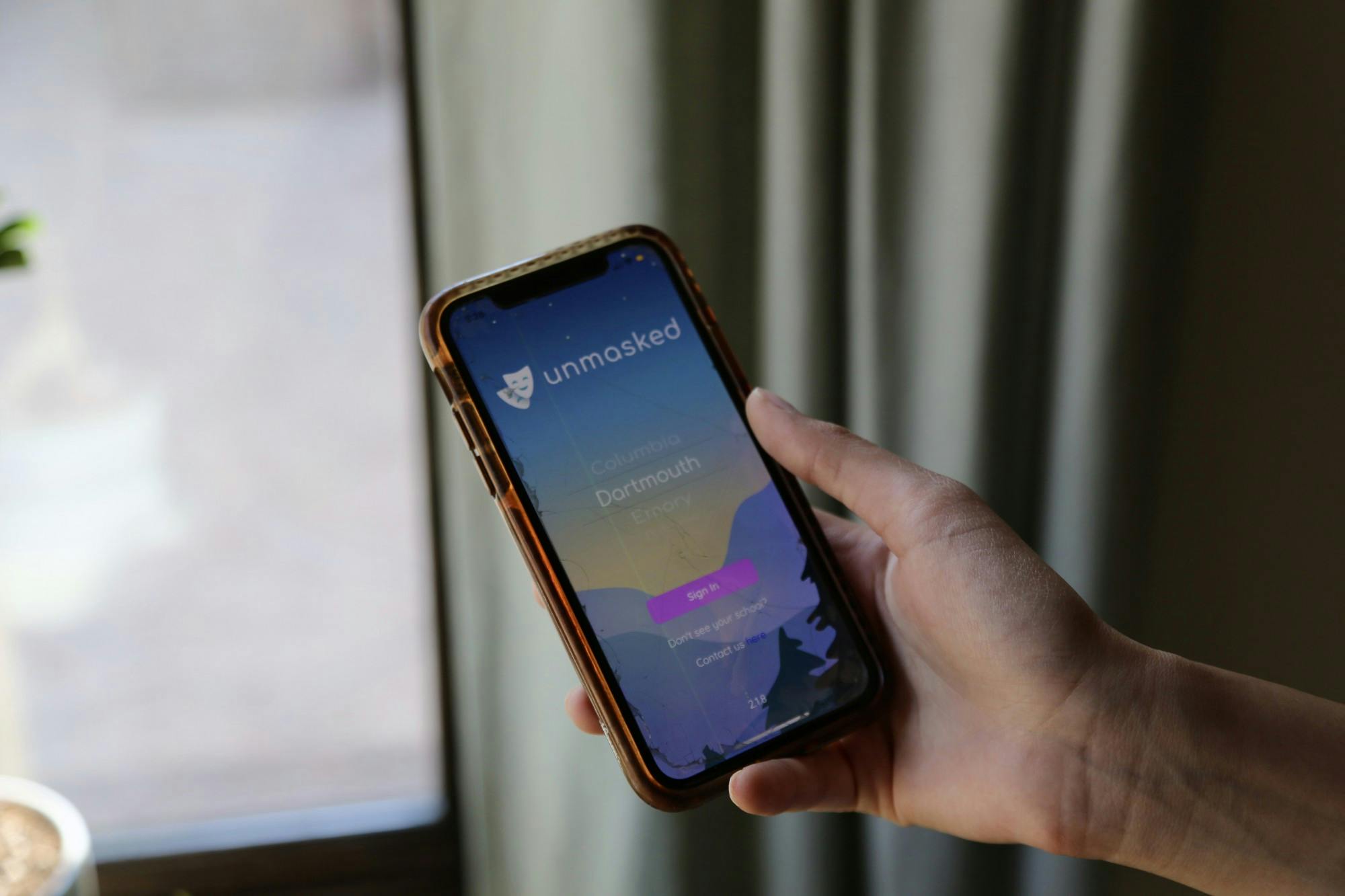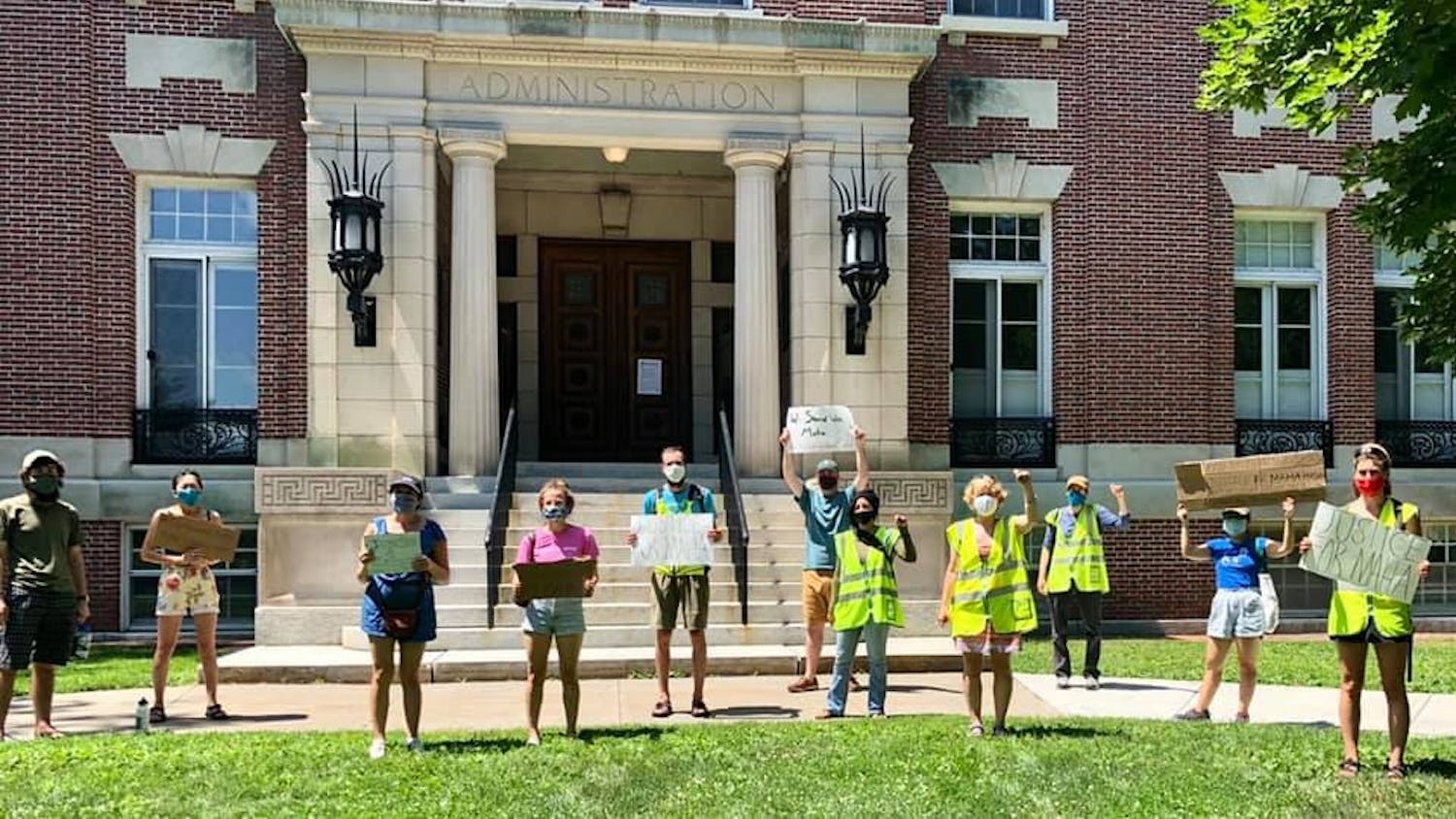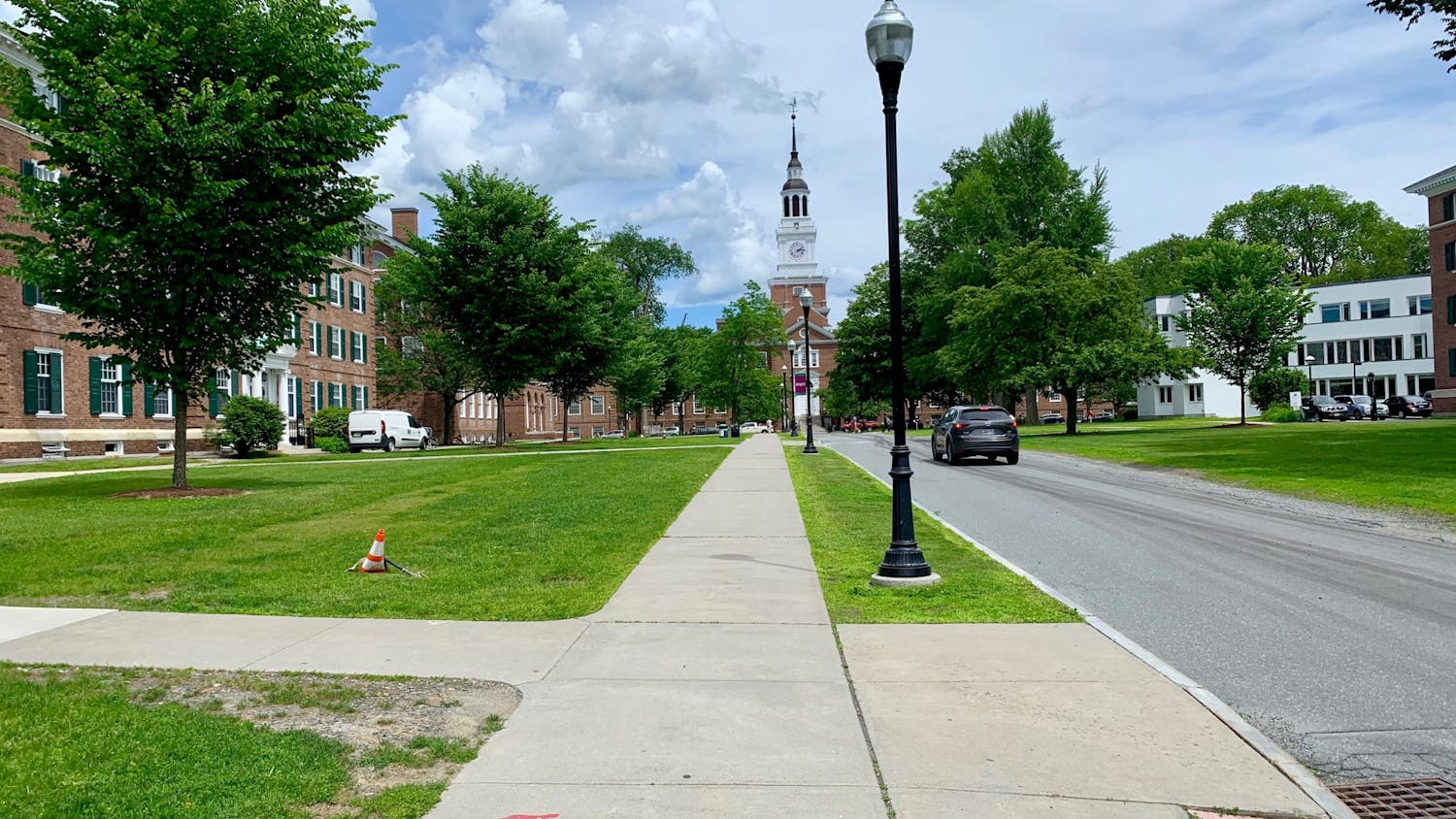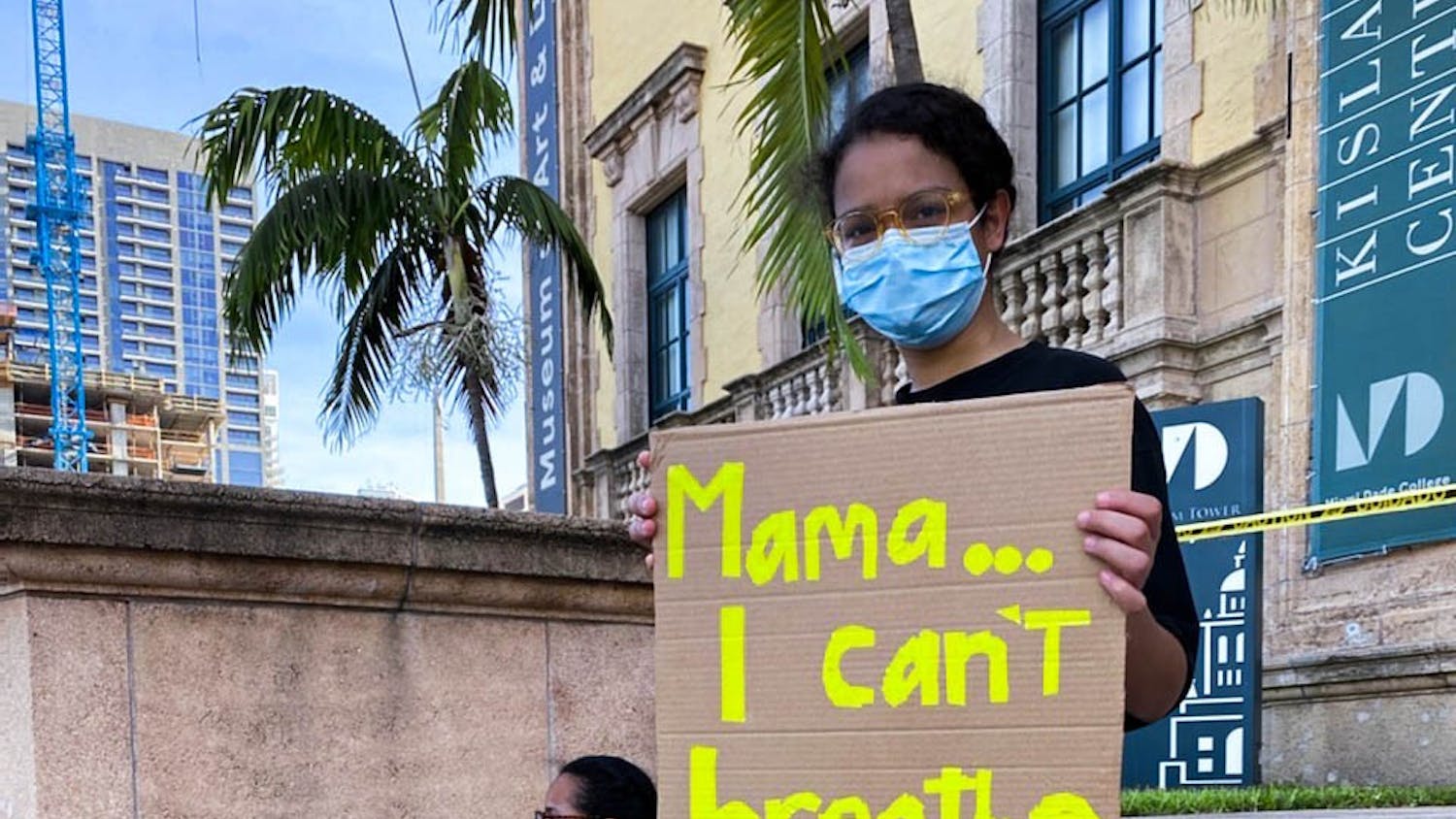Following the involuntary hospitalization of a student who expressed suicidal thoughts on the anonymous, student-run mental health app Unmasked in late July, questions have arisen surrounding the role of app moderators and the College in sharing students’ information and involving law enforcement.
According to Sanat Mohapatra ’20, founder and CEO of Unmasked, the app’s moderators contacted Dartmouth Safety and Security after a student voiced suicidal thoughts on the app and continued to display suicidal ideation in direct messages with moderators. After Dartmouth subsequently contacted the police in the student’s area, who hospitalized her against her will, the student shared her story in an anonymous Aug. 8 post on the Instagram account @survivingivy.
In the Instagram post, the anonymous student recounted being “dragged to the ER in a deeply traumatizing, triggering and violating incident” and “subject to increased violence at home,” after Unmasked shared her information with Dartmouth Safety and Security. The student described the situation as an “inconceivable violation of privacy.”
Mohapatra said that moderators reached out to the student individually after her initial post on Unmasked, sharing crisis intervention resources and checking in on her safety. Over the course of the next day, Mohapatra and other moderators remained in contact with the student via direct messaging, continuing to share resources and offering support.
According to Mohapatra, the student eventually became unreceptive to moderators’ communications and ultimately responded with a message that Mohapatra said indicated the student was an “imminent threat to self.” At this point, Mohapatra said that the student’s communications had crossed the threshold for law enforcement involvement as outlined in the app’s community guidelines, to which users agree when they sign up. The guidelines Mohapatra referenced, which Unmasked publishes on its website, specify that only in the case of “serious perceived threats to self or others will [Unmasked] provide local law enforcement with access to personally identifiable information.”
“When I saw that [the user] had specified a plan and a timeline, that was when I realized that the situation was out of our hands,” Mohapatra said. “Because the student was in danger and it was a life and death situation, I called Dartmouth Safety and Security and used our data turnover functionality, which only I have access to.”
According to Mohapatra, Unmasked turned data over to Safety and Security because the department, in addition to having emergency contact details, has information on students’ last-known whereabouts. After Mohapatra contacted them, Safety and Security told him that they would reach out to local law enforcement in the student’s area.
Mohapatra described feeling uncomfortable with the situation and said that he later followed up with both Safety and Security and the local police department to confirm that they were aware of the student’s specific circumstances.
Interim Safety and Security director Keysi Montas declined to comment on the specific situation, but wrote in an email statement that “any time we receive information regarding the health and safety of any community member, we will do our best to make sure the individual is safe.”
In an interview with The Dartmouth, the student, who requested anonymity, said that she questioned both Unmasked and Dartmouth’s decisions to involve law enforcement, stating that this response involved “calling one threat to quell another threat.”
“It seems that [Unmasked] doesn’t really have users’ best interests in mind, because I do think that anyone who even remotely thought about contacting police would have realized that … calling police in mental health situations is almost always unproductive and usually makes things worse,” the student said. “If I was undocumented, or if I was Black … or if I was queer or trans, I would be at a much higher risk of police brutality.”
Mohapatra said that, although he is critical of law enforcement’s ability to intervene in mental health crisis situations and was aware of the potentially serious ramifications — especially if the student happened to be low-income and could not afford the hospital bills or undocumented — in the moment, he felt an “ethical responsibility to intervene in some way” given the imminent life-and-death nature of the situation.
The student said that upon returning from the hospital, she found an expensive bill waiting for her, and she faced “punitive consequences” at home that caused a further decline in her mental health. However, she said that she appreciated the GoFundMe that Mohapatra has since launched to help her pay the bill, which has received donations totalling more than $900 of a $2000 goal as of press time.
The student also criticized Dartmouth’s mental health services for their lack of accessibility.
“It’s really bad that an anonymous app is replacing mental health services, and it’s a really sad statement about our school,” the student said.
Additionally, the student questioned Unmasked’s decision to “wait until something bad happened” to look into non-police alternatives for “dealing with mental health crises,” adding that she felt as if she and other users were “guinea pigs in their whole tech experiment.”
According to Mohapatra, this was the first time that Unmasked has initiated data turnover since its launch in January. He noted that, in general, conversations around the topic of suicide are allowed on the platform, which has seen a total of 57 posts containing a suicide warning label. In each instance, according to Mohapatra, moderators contacted the poster to “make sure that they were safe” and to offer resources, but opted not to involve law enforcement because the posts did not pass the app’s thresholds of “intent, plan and immediacy.”
In the future, Mohapatra said that Unmasked will work towards transitioning to crisis intervention teams consisting of mental health professionals trained in emergency response. He said he plans to start by lobbying Safety and Security to incorporate these teams into their intervention efforts, although he acknowledged the difficulty of convincing the College to take this step.
Speaking in a personal capacity, Olivia Goodwin ’21, a founding member of the Dartmouth Mental Health Student Union who is currently inactive, said that they hope Unmasked moderators were clear about their threshold for emergency response throughout their interaction with the student.
“In therapy, the therapist will tell you if you are approaching that threshold of ‘I think you’re about to say something where we’ll have to take action,’ and then they give the individual the agency [to make a decision],” Goodwin said.
Goodwin also expressed concern that the anonymous nature of Unmasked might make it difficult for moderators to offer personalized support, both in crisis and non-crisis situations, in the way that someone more familiar with a person and their situation might be able to.
MHU declined to comment on the story, and clarified that the organization is “not affiliated with Unmasked in any way.”
Hanover Vale ’20, who was vocal on social media following the @survivingivy post, expressed worry about Unmasked “exacerbat[ing] some of the more systemic issues within our care infrastructure” and “potentially doing more harm than good.”
“My mind goes to how, oftentimes, our first responders are not individually trained for crisis response,” Vale said. “Police responding to mental health crises can often have really scary consequences for people of color and Black people in particular.”
Instead of “innovating as an application,” Vale thinks that Unmasked should “innovate how to rethink [existing systems]” within an “already very complicated landscape of care infrastructure in the U.S.”
“Something that comes to mind is asking in what ways is Unmasked operating as a technological fix to a much more complicated problem, which is that Dartmouth doesn’t have the infrastructure to support students with complicated mental health needs,” Vale said.
Correction appended (Aug. 22, 2020): A previous version of this article incorrectly suggested that Goodwin was speaking on behalf of the MHU. The article has been updated to reflect that Goodwin is not currently active in the group, and was speaking in a personal capacity. The article has also been updated to include that the union declined to comment on the article.





